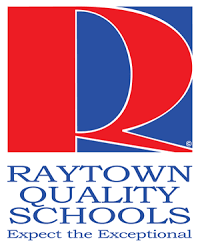07 Oct Children’s Center for the Visually Impaired (CCVI) Receives $127,000 from the North American Savings Bank (NASB)
Children’s Center for the Visually Impaired (CCVI) recently received a grant for $127,000 from the North American Savings Bank (NASB) to support technology upgrades and infrastructure supports.04 Oct What If You Have Too Much of a Good Thing? by AGS Staff
It’s normal and often encouraged to seek multiple funding opportunities for a single program, often referred to as braided funding (see Braiding Funds without Getting Tied Up In Knots – Approaching Budgets with Pre-Award and Post-Award In Mind by Julie Alsup, GPC). You might even request more funds than you need to run a program with the expectation that one or more proposals will fall through. As nonprofit organizations that belong to and are supported by the public, we should always be looking for new funding streams in case an existing source should dry up. But what if you ask for more than you need, and all the funders decide you shall receive?01 Oct Funding Alert! Rural Communities Opioid Response Program – Implementation Grants
United States Department of Health and Human Services – Health Resources and Services Administration Does your organization work to address substance use disorder in rural communities? The Department of Health and Human Services (HHS) recently posted information about a forecasted funding opportunity with its Rural Communities Opioid Response Program (RCORP). RCORP is a multi-year initiative that focuses on reducing the morbidity and mortality of substance use disorder (SUD) and opioid use disorder (OUD) in rural communities. This particular opportunity focuses on RCORP-Implementation grants. Let’s take a closer look at this forecasted grant program, using information from the (closed) funding opportunity announcement from an earlier 2020 cycle.25 Sep Funding Alert! Street Outreach Program Grants
United States Department of Health and Human Services – Family and Youth Services Bureau Street Outreach Program Is your program seeking funding to provide street-based outreach and education for runaway or homeless youth? The Department of Health and Human Services Family and Youth Services Bureau (FYSB) recently posted information about a forecasted funding opportunity with its Street Outreach Program (SOP). The SOP’s purpose is to provide prevention and intervention services for runaway or street youth or youth experiencing homelessness who either have been or are at risk for becoming victims of sexual abuse, exploitation, or trafficking. Let’s take a closer look at this forecasted opportunity, using information from the closed 2020 funding opportunity announcement from this past spring.21 Sep GPC and Youth Development – What’s Youth Got to Do with It? by Tracey Diefenbach, GPC
Posted at 21:19h
in Competency Three, Professional Development, Program Design, Program Development, Tracey Diefenbach, GPC
As a grant professional and GPC holder who has spent the majority of my career in youth development, I cannot help but consider how earning my GPC has shaped my ability to impact this sector. Sure, having a GPC raises ethical standards and increases knowledge and skill sets in key areas like research, project design, and writing to improve quality and efficiency, but what about a deeper level of impact? I truly believe having a GPC can significantly advance a grant professional’s ability to drive meaningful change, not only within their organizations but also within their broader sector. I have experienced this firsthand in my work with youth-serving organizations.










